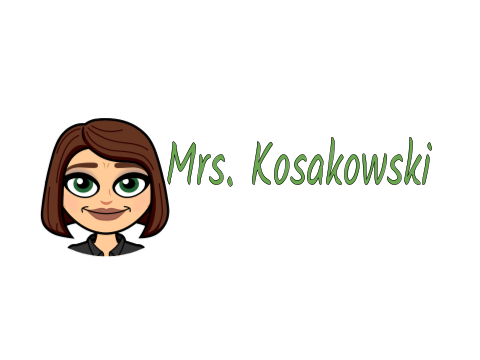Nurturing Tomorrow's Digital Citizens
A Journey through Sixth Grade Digital Citizenship Education
In an era where screens dominate our daily lives, the importance of teaching digital citizenship to young students cannot be overstated. As sixth-grade students embark on their academic journey, educators recognize the necessity of equipping them with the skills and knowledge to navigate the digital landscape responsibly.
The Digital Landscape:
The digital landscape has become an integral part of our lives, transforming the way we communicate, learn, and socialize. Sixth-grade students are at a crucial developmental stage where they are exploring their identities and forming habits that will shape their future behaviors. As they navigate the digital world, they encounter a plethora of information, diverse perspectives, and various forms of media.
Digital Citizenship in Sixth Grade:
Digital citizenship education for sixth-grade students goes beyond mere technical skills. It encompasses a holistic approach that includes understanding online etiquette, respecting intellectual property, and critically evaluating information. Students are introduced to the concept of responsible online behavior, fostering a sense of respect and empathy for their digital peers.
Importance of Media Balance:
One of the cornerstones of sixth-grade digital citizenship education is the emphasis on media balance. The ability to manage one's time spent on screens and strike a healthy balance between online and offline activities is a crucial skill that will benefit students throughout their lives.
Sixth graders are often exposed to a multitude of digital platforms and devices. Teaching them the importance of taking breaks, spending time outdoors, and engaging in non-screen activities helps prevent digital burnout. Understanding that a healthy balance contributes to overall well-being is a lesson that will stay with them.
Media balance involves not only limiting screen time but also encouraging students to critically evaluate the content they consume. Sixth graders learn to differentiate between credible sources and misinformation, honing their ability to make informed decisions in the digital age.
Digital communication should complement, not replace, face-to-face interactions. Sixth-grade digital citizenship education emphasizes the importance of nurturing real-world connections. Students learn to appreciate the value of spending time with friends and family without the constant presence of screens.
As sixth-grade students delve into the intricacies of digital citizenship, the importance of media balance emerges as a guiding principle. By instilling these values early on, educators are not only preparing students for the challenges of the digital age but also nurturing responsible, well-rounded individuals. The journey through sixth-grade digital citizenship education sets the stage for a future where these students can navigate the digital landscape with confidence, empathy, and a keen understanding of the importance of maintaining a healthy media balance.
Technology Essential Questions:

Digital citizenship education for sixth-grade students goes beyond mere technical skills. It encompasses a holistic approach that includes understanding online etiquette, respecting intellectual property, and critically evaluating information. Students are introduced to the concept of responsible online behavior, fostering a sense of respect and empathy for their digital peers.
Importance of Media Balance:
One of the cornerstones of sixth-grade digital citizenship education is the emphasis on media balance. The ability to manage one's time spent on screens and strike a healthy balance between online and offline activities is a crucial skill that will benefit students throughout their lives.
Sixth graders are often exposed to a multitude of digital platforms and devices. Teaching them the importance of taking breaks, spending time outdoors, and engaging in non-screen activities helps prevent digital burnout. Understanding that a healthy balance contributes to overall well-being is a lesson that will stay with them.
Media balance involves not only limiting screen time but also encouraging students to critically evaluate the content they consume. Sixth graders learn to differentiate between credible sources and misinformation, honing their ability to make informed decisions in the digital age.
Digital communication should complement, not replace, face-to-face interactions. Sixth-grade digital citizenship education emphasizes the importance of nurturing real-world connections. Students learn to appreciate the value of spending time with friends and family without the constant presence of screens.
As sixth-grade students delve into the intricacies of digital citizenship, the importance of media balance emerges as a guiding principle. By instilling these values early on, educators are not only preparing students for the challenges of the digital age but also nurturing responsible, well-rounded individuals. The journey through sixth-grade digital citizenship education sets the stage for a future where these students can navigate the digital landscape with confidence, empathy, and a keen understanding of the importance of maintaining a healthy media balance.
What does it mean to be a Digital Citizen?
How do we balance digital media in our lives?
How do we balance digital media in our lives?
What can students do to maintain a healthy media balance?
What does media balance mean for me?
2016 Massachusetts Digital Literacy and Computer Science (DLCS) Curriculum Framework:
6-8.CAS
